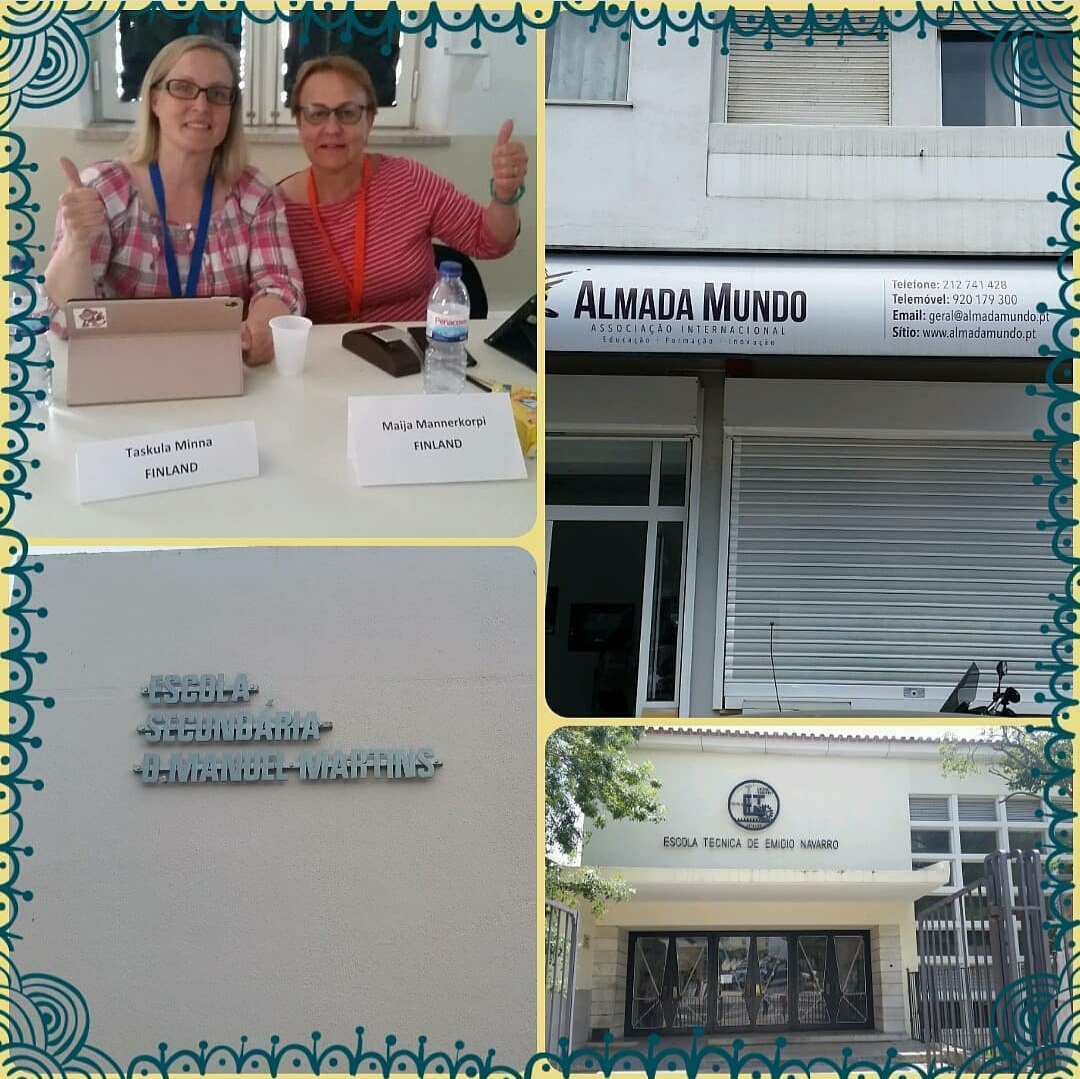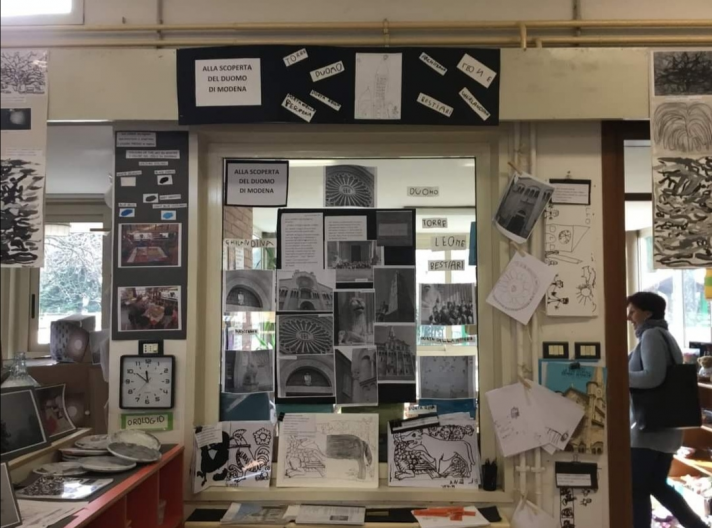
Topic(s) addressed
The Nissnikun Day Care Centre has a strong tradition of small group activities and child-initiated pedagogy, both of which have been targeted for development for a substantial period of time. A common framework defines its principles and evaluation, with the design and development of documentation and its associated reflective discussions, also being key components of this approach. The main perspective is that activities in early childhood education are to be built around the child's interests, and the methods of choice should always support the child's growth and development. The project’s activities were carried out with children, parents, and educators. Documentation and common reflective related discussions were important tools in the project’s evaluation and development, with documentation having comprised of photos, videos, interviews, entries, drawings, maps, audio recordings, paintings, and sculptures that relayed the moods and details about the day care centre’s activities. Said documentation was then blended into packages that were personal and relevant to each child’s growth. At Nissniku kindergarten, we wished to find out what children were interested in and combine information from everyday activities in pedagogically constructive ways. Children's perceptions and thoughts were mapped through interviews by observing and documenting their play, as well as their movements in artistic, intellectual, and social activities. The Erasmus+ project allowed us to not only continuously develop our recognition skills and tools, but also visualisation tools in our work with the community. Each teacher recorded the ideas of children in a variety of ways, coupled with consistent pedagogical documentation. Furthermore, teachers also documented their own development as it provided an opportunity to observe and evaluate their professional practice and development. Finally, documentation also served as a research tool; in order to document, educators had to learn different methods and the ways of doing so, for example, through the utilisation of ICT equipment (provided by the Erasmus+ project). As a result, we improved our skills in implementing pedagogical documentation and the use of ICT as a support tool.
Target groups
The project’s target groups consisted of early education teachers, the kindergarten director, preschool teachers, a comprehensive special kindergarten teacher, special kindergarten teacher, and a nurse.
Methodologies
The project’s main pedagogical approaches, which included small group activities, child-initiated pedagogy, and common reflective-related discussions, were all pedagogically interesting and advanced. Furthermore, building activities in early childhood education around the child's interests and supporting child growth and development were key issues for qualitative ECEC, given that they were carried out together with children, parents, and educators. To this end, the Erasmus+ project increased the use of digital tools throughout this process; each ECEC teacher developed their own digital portfolios for their personal learning and reflection via the Peda-net platform, which is widely used in Finland. The portfolios clearly reflected how much documentation and associated reflective approaches had increased during the project’s duration, and the ways in which they have affected day care developments. The use of digital tools with children during the day care’s everyday activities were also expanded; for example, the application of tools outdoors and in nature. The Erasmus+ project initiated the unification of documentation and reflection activities, which has since led to the building of common processes for all of the day care’s ECEC teachers; the project has also provided a lot of inspiration and energy for further developments.
Environments
In one way or another, the project involved the entire day care centre, and as its aim was to discover children’s interests and combine information from everyday activities in pedagogically constructive ways, it was crucial that children's perceptions and thoughts were mapped through interviews, observation and documentation of their playtime, as well as their movements in artistic, intellectual, and social activities. This was carried out indoors, outdoors, and across all the different learning environments and situations the children were exposed to. In order to achieve this, a number of common documentation tasks were developed by the project for all staff; these were carried out using a number of different digital tools and environments, and the testing of different approaches. Fortunately, the day care was digitally well equipped, with its tools efficiently utilised throughout the project. Documentation was carried out in several different ways, with photos, videos, interviews, entries, drawings, maps, audio recordings, paintings, and sculptures serving as mediums that relay the moods and details of the day care’s activities. Such documentation was blended into packages that were personal and relevant to each child and their personal growth. These digital approaches were further put into focus during the COVID-19 pandemic, such as seen in spring 2020 when the ECEC moved into safety mode through minimised contacts and the project’s tools and approaches were utilised to maintain contact with parents.
Teachers
The project was fully implemented with ECEC teachers and staff, with the eTwinning platform playing an important role in the project; for instance, one of the teachers participated in a seminar in Belgium and further developed the project’s contacts. The eTwinning platform also provided contacts for other projects that worked with pedagogical documentation, with all of the project’s participants registered for the School Education Gateway, the eTwinning platform, as well as the Finnish platform Peda-Net. The insight provided into other countries’ ECEC systems increased the project’s reflective nature and the work of each teacher by not only enhancing peer learning among partner countries, but also between national teachers. It was also quite interesting for the staff to see and learn about the interest that the Finnish system holds for other countries, and it was an honour to have presented Finnish approaches abroad. The excitement and interest towards long-term ECEC pedagogical development was elevated among staff, which led to the Niisniku Day Care Centre receiving Erasmus+ accreditation.
Impact
The use of digital tools both for documentation and connections among staff, children, and parents was greatly enhanced and widely implemented during the Erasmus+ project. This was especially true with the use of the eTwinning platform, as well as the national system Peda-Net and Microsoft Teams – all of which proved to be very useful both in everyday communication, as well as for documentation and reflection. This was further elevated during the COVID-19 pandemic, which necessitated distance learning; by this time, staff, children, and parents has already gotten accustomed to digital environments, and they were much more aware of their child’s everyday developments though digital documentation. Altogether, these approaches have strengthened the connection between ECEC, the home environment, and parents, with an example being the families-owned talent show that previously was held at the day care, but which has since (following the pandemic) been moved to a virtual talent show on Peda-Net. Furthermore, children’s reflection and digital skills improved as they realised that digital documentation was a way for them to showcase to themselves and others what they had learnt and how they have developed. This has in turn increased their joy in learning new things, their excitement in understanding how and why they learn, and the happiness they experience in sharing as a result of pedagogical documentation.
- Reference
- 2017-1-FI01-KA101-034644
- Project locations
- Finland
- Project category
- Early childhood education and care
- Project year
- 2021
Stakeholders
Participants
Language Education and Partnerships Ltd.
- Address
- United Kingdom
Emídio Navarro
- Address
- Portugal
Enjoy Italy
- Address
- Italy

